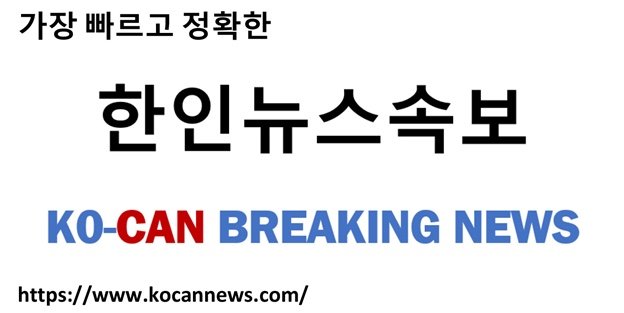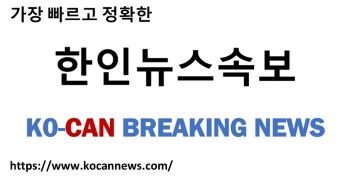정희수 특별기고
한국 대선과 한반도의 운명(1)
(Presidential Election and the Destiny of the Korean Peninsula)
By Joseph H. Chung (정희수)
정희수 교수
Professor of Economics, Quebec University in Montreal (UQAM)
Coming March 9 could be a terribly important day, because it is the date for presidential election. The outcome of this election will decide the fate of the Korean peninsula.
There are four parties in the race, but the race is between the pro-Japan conservative party, called, People Power Party(PPP) and the liberal Democratic Party(DP). The candidate of PPP is Yoon Seok-youl, former prosecutor general, while that of DP is Lee Jae-myung, former mayor of Kyung-gi Province.
What is at stake is the survival fight between two South Koreas, namely the pro-Japan conservative South Korea and the liberal South Korea. What comes out of this fight will have devastating impacts on the economy, people's welfare and security, North-South peace dialogues, Korea-Japan relations, Korea-US relations and Korea-China relations (1)
This paper is intended to discuss the nature and the historical significance of this election. First, I will examine how these two South Koreas have been fighting for last 74 years. Second, I will discuss the impact of the outcome of this election on the fate of the Korean peninsula.
Historical Fight between Conservative South Korea and Liberal South Korea
The first conservative government was established in 1948 and, since then, it has ruled South Korea for 59 years. It has positive image abroad, especially in Japan, but, in Korea, they are regarded as a hostile group harming the interests of ordinary Koreans
In the eyes of Koreans, they were collaborators with Japan in stealing Koreans' assets, recruiting girls to be sent to the camps of "comfort women", sending Korean workers to work as slaves in Japanese mines and factories, sending young men to the most dangerous frontline to defend Japan, forcing Koreans to give up their Korean names and adopt Japanese names and, above all, killing Korean patriots who fought the Japanese armed forces and police.
Koreans believe that they should have been punished for their participation in the Japanese oppression of Koreans, but they were not punished because of the American military government(1945-1948) and the Syngman Rhee government(1948-1960) which hired them in great number and which destroyed the list of those who were traitors in the eyes of Koreans.
In 1948, there was the first post-war presidential election and the fight was between pro-Japan group led by Syngman Rhee backed by Japan as well as the U.S. and Korean nationalists led by Kim Gu. The pro-Japan people knowing that they had no chance to win, they decided to commit two crimes to win the election.
First they assassinated Kim Gu who was the president of the Provisional Government of Korea in China. Thousand of nationalists were arrested and incarcerated. The murderer of Kim Gu was amply rewarded later by the pro-Japan government.
Second, there was a committee for the production of the list of collaborators. The office was attacked and the list of collaborators was destroyed by the former Japanese police of Korean origin. The pro-Japan group won the election.
It is true that the conservatives have made a major contribution to the economic miracle of Han River. They formed the tripartite collusion composed of business, bureaucrat and politicians. The tripartite collusion was a combination of political will to develop the economy, risk taking entrepreneurship and planned mobilization of financial, human and material resources. There is no doubt that the tripartite collusion was the key factor of the take-off of the Korean economy in the 1970s and the 1980s
However, the tripartite collusion was accompanied by the exchange of privileges accorded by the government to large businesses in exchange for bribes which are given to government officials. This lucrative exchange became worse as the Korean economy attained the stage of matures economy and eventually led to the formation of corruption community and corruption culture (2)
When the corruption culture is formed, it is almost impossible to get rid of it. There are two powerful protectors of the corruption community and corruption culture. One is the judicial system and the other is the media.
The conservatives have been able to survive all these decades due to the corrupted police, prosecutors and judges. The role of the judicial regime in the corruption culture is the protection of its community members in exchange for bribes and the punishment of the people of opposition for promotion.
The most notorious case was the condemnation for two years in prison of former Prime Minister Han Myong-suk of the Democratic Party(DP) on the basis of purely fabricated witness story by a couple of inmates who later confessed that they had lied under the threat of the prosecutor. This happened in 2015. The prosecutor and the judge involved in the case had big promotion.
The role of media is the marketing of the corruption community. In Korea, three major newspapers are the leading protectors of the corruption community, namely, the Chosun Ilbo, the Joong-ang Ilbo and the Dong-ah Ilbo (Cho-Joong-Dong). The master is the Chosen Ilbo which is the richest and superior in media technology and edition skill. In fact, Western media, especially the Japanese media copy what the Chosen Ilbo reports as if it is the correct and unbiased report.
Money commands public opinion. As the date of the election approached, the number of poll businesses skyrocketed; now there are more than 70 of them; they have been created for the election and to make money; they publish poll results which are in favour of the pro-Japan conservative hoping that the public opinion will follow the trend of the poll results. The conservatives have a lot money, which the liberals do not have.
The pro-Japan corrupted conservatives have been piling hundreds of billions dollars through the embezzlement of public money and bribes. Money has been the chief reason for ruling Korea for 59 years; the money can be mobilized to prevent the liberal Koreans from taking power. The money is very visible; the money talks aloud; the money is threatening the current electoral fight.
The conservatives are not liked by ordinary Koreas for other reasons. To begin with, the conservatives have prepared the list of the Korean patriots and descendents and persecuted them by labeling them as "reds", "non-desirable" in the name of the National Security Law, by preventing them from having job, by harassing their children at schools and by alienating from the collective life. As a result, most of these people are poor and less educated. Since President Moon Jae-in took over the power in 2017, various measures have been taken to help them.
There is another reason why ordinary Koreans do not like the pro-Japan conservatives. It is the fact that they have been working with Japan to hide the Japanese atrocities committed in Korea. It is understandable, because they were co-offenders against Koreans.
Many academics, religious leaders, politician and bureaucrats are descendents of the collaborators. In particular, there is so called "New Right" movement led by some pro-Japan religious leaders and a large number of academics who have been suspected to be generously funded by Japan.
One of the tasks of these people is to make Korean to feel inferior to the Japanese and even to justify Japan's Korea invasion by arguing that the invasion was for the good of Koreans. Under Lee Myong-bak and Park Geun-hye, the New-Right scholars have re-written the high school text books in which the story of Japan's war-time crime of sex slavery and labour slavery were taken off.
Now, liberal Koreans represented by the Democratic Party(DP) have been fighting to survive the oppression by the pro-Japan community. They rose up in huge numbers against the pro-Japan government. (다음 호에 계속)



